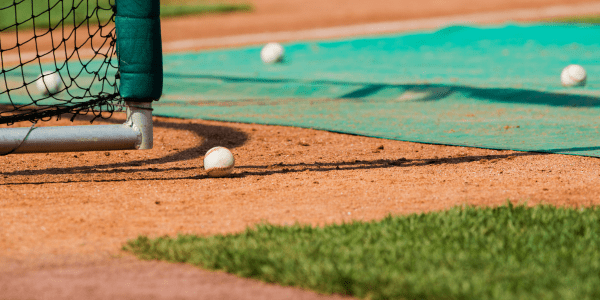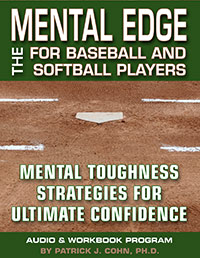The Overrated Physical Component of Baseball
When people talk about baseball they usually mention the physical aspects of the sport such as, hitting, arm-strength, and power.
The primary focus of athletes today is improving their physical game to compete at a higher level.
The physical component of the game is so emphasized that a good handful of professional ball players began using illegal performance enhancement supplements to gain a competitive edge.
The physical component of baseball is important, but it’s also highly overrated.
Somewhere along the road players and fans forgot that baseball is a mental game.
Hall of Famer, Jogi Berra once said, “Baseball is ninety percent mental and the other half is physical,” and Phillies Manager Charlie Manuel states that, “succeeding in baseball is 90 percent mental.”
Baseball players should develop mental strength and mental toughness to gain a competitive edge, rather than cheat to improve their physical strength.
Physical strength may help you hit a ball farther but it isn’t going to help you hit .330 or win a championship.
Mental training is legal in baseball, and it helps athletes reach their peak level of performance.
Mental training areas that help you perform to your potential include:
- Confidence
- Composure
- Focus
- Trust
- Preparation
- Practice efficiency
- Patience
In Major League Baseball mentally tough players are the cream of the crop.
Chase Utley for example states, “I go through my pre-game routines and make sure my mind is right. The difference between a good game and a bad game is your head.”
And Derek Jeter has said, “Once you step into the on beck circle you have to get into a hitters mindset.”
Mental Training is legal, inexpensive, effective and highly recommended by professional athletes.
To improve your performance in baseball use mental training to supplement your performance needs, such as the tips listed below:
- Stay present focused. You must keep your mind in the present moment on what’s important to play your best. This is easier said than done. It is easy to think about the last strike out you had or think ahead about the results of striking out. Know the task-specific cues you should focus on and be aware when you are not on task. Stop and refocus your mind on the task or on what you should think about to execute well.
- Think one bat a time. Think about only the one pitch at a time to help you stay focused on execution. Separate each pitch from the rest and don’t think about the consequences of getting a hit. You don’t want to be thinking about the last inning when you are at the plate in the middle of the game.
- Don’t thing about results or outcomes. If you think about what you don’t want to do, you’ll tighten up and make a controlled swing. When you think about results, you’ll create tension and indecision. Focusing on execution will help you get good results. Your at-bat routine should help you focus on specific cues to follow as you prepare for each at-bat. If you don’t have a routine, the mind is free to wander aimlessly as you prepare for each pitch.
- Cue yourself to concentrate. Sometimes it’s hard to refocus when the last at-bat was 30 minutes ago. Lock in your concentration once it is your turn to at the plate. To help you click in, try using a physical trigger to focus your mind, such as tightening the Velcro on your glove before start. You want to turn your attention to preparation and execution for the first pitch, and if anything else enters your mind, let it pass through your mind.
- Relax your focus while you wait. Not too many players can focus continuously for two to three hours. When you are up to bat it’s important to be ready, but you don’t want to overanalyze the entire game. After each inning, relax your focus and save your concentration for the next time at-bat. This will help you be “fresher” for the end of the game.
- Rehearse while you wait. Rehearse your at-bat before you’re up to play if you have trouble focusing after a long delay. For example, while on deck, imagine that you are at the plate taking pitches. Time your swing with the pitcher and “see” yourself make solid contact. When it’s your turn, you will be prepared to click in the focus because you already rehearsed your at-bat routine.
Related Sports Psychology Articles
- Integrating Mental Training Into Practice
- Where to Start With Your Mental Training Plan
- Mental Tips for an Early Season Hitting Slump?
*Subscribe to The Sports Psychology Podcast on iTunes
*Subscribe to The Sports Psychology Podcast on Spotify
Get The Mental Edge for Baseball and Softball
If you have trouble taking your practice game to competition and under perform in games, your mental game might be the culprit! Baseball and softball players contact me everyday wanting to know why they become scared, anxious, afraid to make mistakes, and lack trust in their skills during games…
You might have a ton of physical talent and perform great in practice, but if you can’t get the job done when it counts, something is missing and the problem is an inferior mental game–not talent or motivation.
We’ve spent the last six months developing a program to teach you how to improve your mental game in 8 easy-to-apply lessons–the same TOP lessons that I teach to baseball and softball players everyday in my one-on-one mental coaching program!


